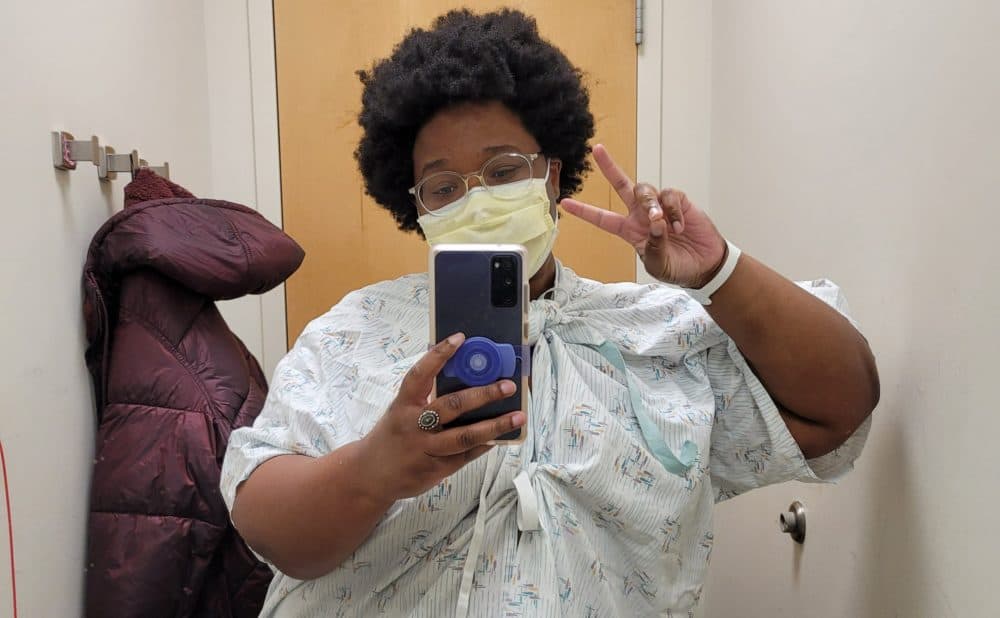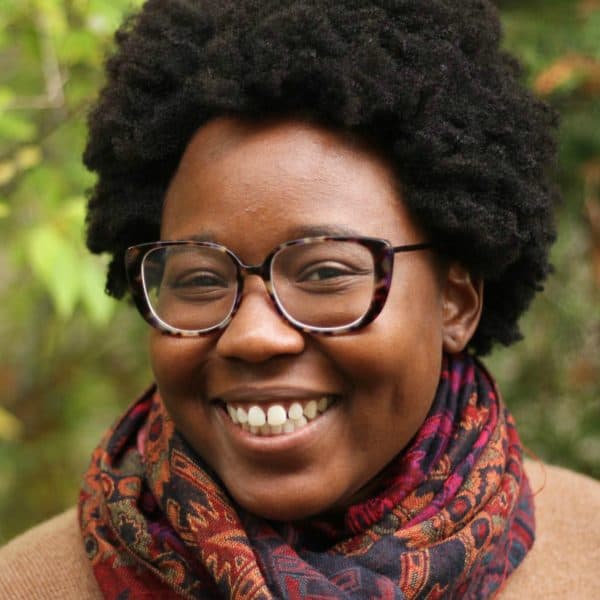Advertisement
Commentary
I shouldn’t have had to wait so long for my first mammogram

A close friend of mine regularly reminds me to feel my breasts. She’s a cancer survivor, and wants to make sure I’m doing consistent self-examinations. It's a reminder I shouldn’t need.
But I do.
My mom was diagnosed with breast cancer in April 1998, just one week before my 15th birthday. She’d begun to feel something in her left breast, but could only find it when she was soapy in the shower. She was 46 and had started annual mammograms some six years prior.
After feeling the lump for about a week and a half, she called her doctor. On the exam table, neither of them could feel anything — but my mom persisted. She asked for her mammogram to happen a month early, and her doctor agreed. There was something — an almost imperceptible something — on the scan, so she was referred to a surgeon.
“I don’t feel anything …” my mom remembers her surgeon saying during her physical exam. “Let’s wait six months and then do another mammogram and ultrasound, and see what they show.”
Black women like me and my mom are 40% more likely to die of breast cancer, because generally speaking, our doctors do not take us seriously.
You might think it odd that the surgeon would rely on feeling, and not the scan. I should think it's odd, too. But I don’t. Black women like me and my mom are 40% more likely to die of breast cancer, because generally speaking, our doctors do not take us seriously. I wonder if my mom — also a physician — was thinking about the bias medical professionals tend to have towards Black women when her surgeon gave that recommendation. Doctors tend to be reasonable and prudent, my mom is no exception. But: She knew what she felt.
“I’m really not comfortable waiting,” my mom pressed her surgeon. “If I were your sister or your mother,” she asked, “what would you recommend?”
The surgeon agreed to do a biopsy, and it found cancer. Within a few weeks, my mom was in chemotherapy, after having a mastectomy to remove her left breast.
Given my family history, I started asking for mammograms when I turned 30. People without any known risk factors are recommended to begin mammograms at 40; and people with known risk are to begin 10 years before the age of their earliest known familial diagnosis. But honestly: I don’t care what the recommendation is. I know my body, and I wanted to be in charge of how to care for it.
Advertisement
... I have understood that my breasts are — in all likelihood — temporary.
Since my mom was diagnosed at 46, I kept being told it was too early for me to begin mammograms. It didn’t matter that there was indication of a genetic element at play, or that my younger sister’s doctor had already allowed her to begin mammograms. I was told no until, after two years of skipping annual appointments because of the pandemic, I finally received a referral for my first mammogram in late 2021. I was 38.
In my appointment at Beth Israel Medical Deaconess Center prior to my mammogram, my breast doctor typed some information into a computer, and then told me that the computer said I had a 49% chance of developing breast cancer sometime in my lifetime. “I know that number can be scary,” she continued, her tone slow and cautious until I laughed. “Oh. I am not scared. My mother had breast cancer. Her aunt died from it. It is all but a certainty in my life. That’s why I’ve been asking for a mammogram since I was 30.”
I have long viewed my breasts as a ticking time bomb. I love them, but since witnessing my mom lose a breast when I was just a teenager still growing mine, I have understood that my breasts are — in all likelihood — temporary. Knowing they’re temporary allows me to love them in a fuller, even celebratory way. My breasts are like a perfectly torched creme brulee. Every year that passes is like the harsh edge of a spoon breaking through, allowing me to relish in one more moment of their safe existence. But as that ramekin gets more and more empty, I come closer and closer to having to make a choice, lest my body make it for me. Still, for the moment, I savor them.
While I was excited to finally have the exam I’d been asking for, I approached my first mammogram with the fear and trepidation that society had taught me was appropriate. But I am here to tell you that mammograms don’t really hurt. Sure, it is uncomfortable to squeeze your boob between two plates while standing in a hospital gown, but that discomfort is temporary.
My breast tech was a short, friendly woman with a head full of gray hair. She maneuvered my flesh like clay, her confident hands like an expert artist’s. “Try not to move,” she instructed me. “Try not to breathe.”
In March 2000, Katie Couric got a colonoscopy on live television for the Today show. Her husband had died of colon cancer, so she knew the importance of regular screenings. I wonder how different the experience of getting a mammogram would be if we could watch a "Today" show host get one while we sipped our morning coffee.
“I have a pretty little colon,” Couric said as we watched her squishy insides on daytime television.
'They’re so beautiful,' I said, gazing at the familiar — albeit flattened — shape of my breast and nipple.
While the inside of someone’s, ahem, backside is a lesser discussed erogenous zone, breasts are overly sexualized. When my mammogram tech showed me my images in the room at BIDMC, I had a similar reaction to Couric. I found myself resisting the self-loving urge to ask her to print out a copy for me to take home. “They’re so beautiful,” I said, gazing at the familiar — albeit flattened — shape of my breast and nipple. There was nothing sexual about it, but a moment like that would never be aired on daytime TV.
Walking back to the changing room, I thought about something my breast doctor told me during my appointment a few weeks prior. “I want to remind you,” she said, “to never take 'No' for an answer when it comes to your own health.” It’s a reminder I shouldn’t need. When the doctors removed my mom’s malignant tumor, they found the cancer — that almost imperceptible something — had spread to seven of her lymph nodes. Had she waited the six months her surgeon first recommended, “I probably would have died,” she told me recently, now 24 years cancer-free.
I wish I’d kept persisting the way my mom had. But more than that: I wish I didn’t have to. When my doctors tell me something, I wish I could trust their advice as prudent and reasonable, and not wonder if they’re ignoring my concerns because they believe Black women have superhuman strength. I shouldn’t have had to wait eight years before getting a yes to have my first mammogram. My mom shouldn’t have had to humanize herself to get a biopsy.
And while I’m making wishes and woulda-shoulda-couldas, allow me one more: No one should be afraid of a generally painless medical procedure because the hype and sexualization of our organs have made us believe it’ll be dreadful. “It really didn’t hurt,” Couric said after her first colonoscopy. Someone needs to be telling us the same about mammograms.
